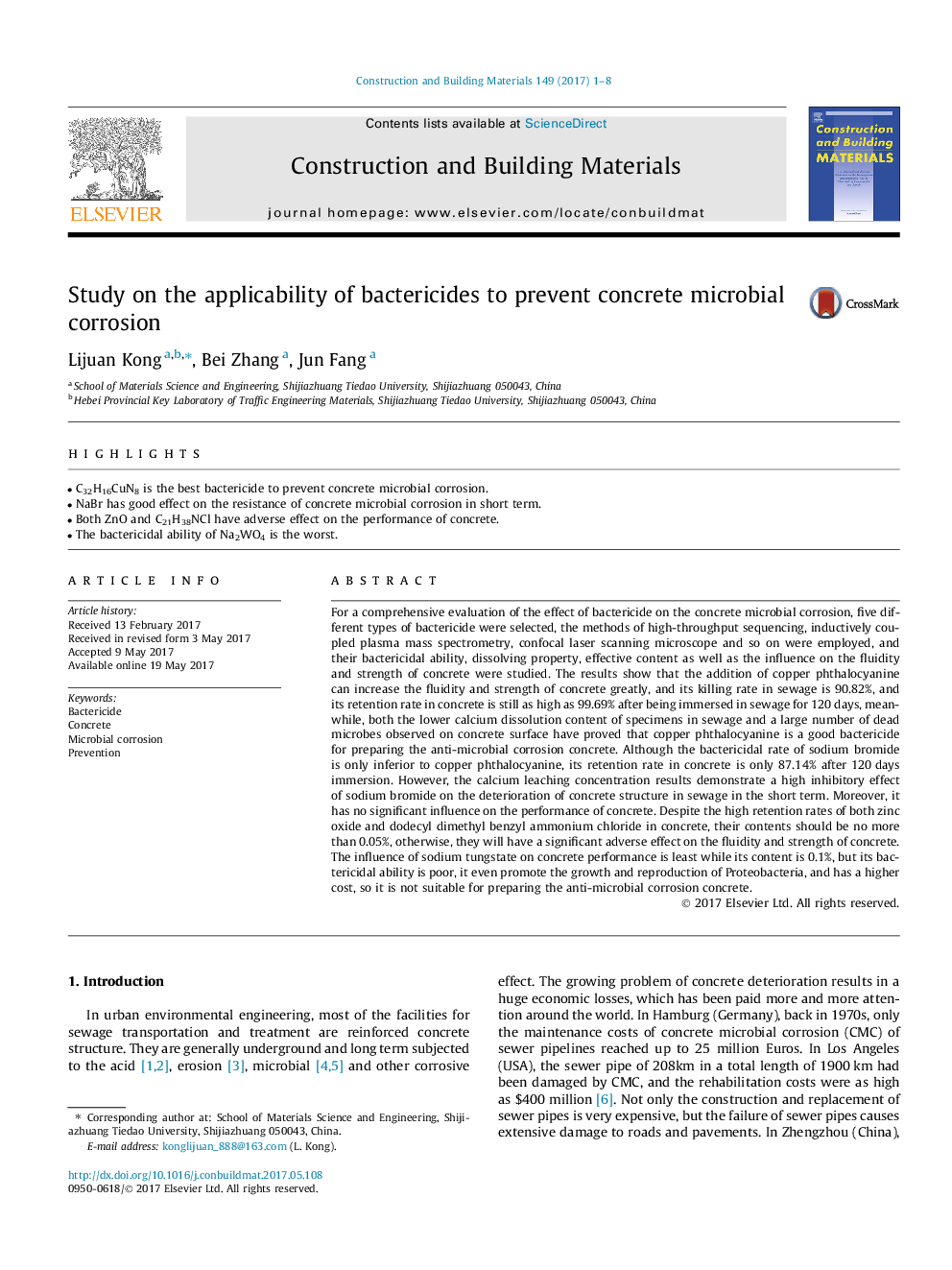| کد مقاله | کد نشریه | سال انتشار | مقاله انگلیسی | نسخه تمام متن |
|---|---|---|---|---|
| 4913051 | 1428757 | 2017 | 8 صفحه PDF | دانلود رایگان |
- C32H16CuN8 is the best bactericide to prevent concrete microbial corrosion.
- NaBr has good effect on the resistance of concrete microbial corrosion in short term.
- Both ZnO and C21H38NCl have adverse effect on the performance of concrete.
- The bactericidal ability of Na2WO4 is the worst.
For a comprehensive evaluation of the effect of bactericide on the concrete microbial corrosion, five different types of bactericide were selected, the methods of high-throughput sequencing, inductively coupled plasma mass spectrometry, confocal laser scanning microscope and so on were employed, and their bactericidal ability, dissolving property, effective content as well as the influence on the fluidity and strength of concrete were studied. The results show that the addition of copper phthalocyanine can increase the fluidity and strength of concrete greatly, and its killing rate in sewage is 90.82%, and its retention rate in concrete is still as high as 99.69% after being immersed in sewage for 120Â days, meanwhile, both the lower calcium dissolution content of specimens in sewage and a large number of dead microbes observed on concrete surface have proved that copper phthalocyanine is a good bactericide for preparing the anti-microbial corrosion concrete. Although the bactericidal rate of sodium bromide is only inferior to copper phthalocyanine, its retention rate in concrete is only 87.14% after 120Â days immersion. However, the calcium leaching concentration results demonstrate a high inhibitory effect of sodium bromide on the deterioration of concrete structure in sewage in the short term. Moreover, it has no significant influence on the performance of concrete. Despite the high retention rates of both zinc oxide and dodecyl dimethyl benzyl ammonium chloride in concrete, their contents should be no more than 0.05%, otherwise, they will have a significant adverse effect on the fluidity and strength of concrete. The influence of sodium tungstate on concrete performance is least while its content is 0.1%, but its bactericidal ability is poor, it even promote the growth and reproduction of Proteobacteria, and has a higher cost, so it is not suitable for preparing the anti-microbial corrosion concrete.
Journal: Construction and Building Materials - Volume 149, 15 September 2017, Pages 1-8
